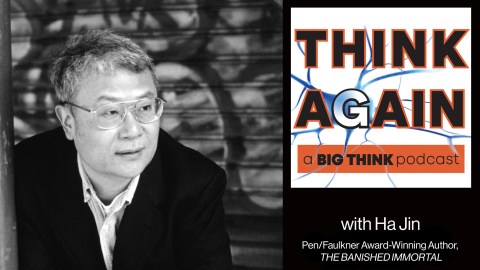Ha Jin on the wild and tragic life of China’s greatest poet, Li Bai

- “I knew in the case of Li Bai, I should follow the poems. Every masterpiece by him would be kind of a small crisis…a center for drama in his life.”
- “There are people who want a different kind of fulfillment. Society should be open to that. In the long run, you don’t know—maybe those idlers can produce more for the society.”
Let’s start with a very old poem :
On the bank of Caishi River is Li Bai’s grave
Surrounded by wild grass that stretches to clouds.
How sad that the bones buried deep in here
Used to have writings that startled heaven and moved earth.
Of course poets are born unlucky souls
But no one has been as desolate as you.
When you think of an an ancient poet, what do you picture? Wandering? Drinking? A lot of ups and downs? That certainly describes the life of Li Bai, one of the most brilliant and beloved poets in Chinese history—a man of whom it is said that he drowned jumping into a river, drunkenly chasing the reflection of the moon.
In his beautiful new biography THE BANISHED IMMORTAL: a Life of Li Bai, the poet and author Ha Jin paints a vivid picture of this extra-vivid man—who suffered the double misfortune of living in interesting times and being interesting himself. Ha Jin is interesting too—a young soldier in China’s Cultural Revolution, he came to America as a grad student. Watching the Tiananmen Square Massacre on TV, he decided to stay in America for good.
Surprise conversation-starters in this episode
Michael Hobbes on student debt





